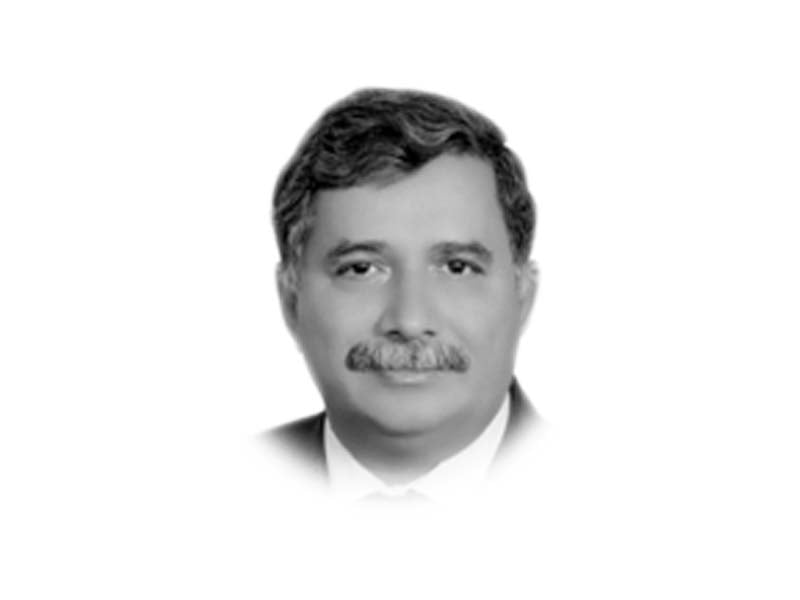
The police in Pakistan has been spending enormous time, energy and financial resources over efforts to improve its sagging image in the public through seminars and workshops. International and national NGOs, having their own axes to grind, participate in these activities under different banners such as ‘Police Awam Saath Saath’. Most of these programmes are held in expensive hotels and are attended mostly by the elite. The question is: where do the common people fit in all these lavish celebrations? Have the benefits of such programmes been extended to the masses and the cops on the beat?
A survey conducted in this respect suggests that neither the community nor the constabulary have any idea about such ventures. It is a stated principle of public administration that institutions are for the good of the public. Their performance, therefore, has to be assessed in terms of happiness of the greatest number. Hence a programme of reforms is a failure if its benefits have not reached the public as well as the police force down to the constable level. No doubt, perception management is an art and is necessary for all organisations but the objective of image-building is hard to achieve, merely by social media activism or seminars, unless ideas are translated into reality as actions speak louder than words.
Going by my own experiential knowledge, I can candidly suggest that principles of public friendly policing are part of all policing laws, from Police Rules 1934 to the Police Order 2002, and Police Act 2017. Before developing a strategy, it is essential for policymakers or researchers to have a look at the baseline and understand where we stand and why. Once understood, it is then easy to suggest where to go and how. But, in the ultimate analysis the financial implications of a reform initiative must also be worked out.
The focus of the Police Order 2002 and Khyber Pakhtunkhwa Police Act is for the police to function according to the Constitution and the democratic aspirations of the people. This requires them to be professional, service-oriented, and accountable to the people. With this intent in mind it was aimed to reform the police for efficient prevention and detection of crime, and maintenance of public order. The focus was upon efficiency which is an essential of good governance.
In this context, the image of the police can only be enhanced by seeking the trust of the people. One of the most important keys is accessibility to the people by shunning snobbish attitude. Responsiveness is one of the attributes of a good police officer. Communication with an aggrieved person lessens half of his burden. This objective was ingrained in the statutory provisions of the Police Order 2002, which emphasised on the attitude and responsibilities of the police towards the public in general, and the vulnerable sections of the society, in particular. More or less, the Khyber Pakhtunkhwa Police Act 2017 also carries the same concepts of public service.
Even the much criticised Police Act 1861 and rules framed thereunder also focused on eliciting the support of the community. In this context, a police officer must always be idealised by the citizens as a wise and impartial friend who would protect them from injury to their life, property and honour. In order to achieve these ideals, a superintendent of the police (SP) must know the people of his district and the actions of his/her subordinates. Good policing can be ensured by an SP offering unhindered personal accessibility, his/her active touring of the district, thorough and intelligent supervision of subordinates and a genuine interest in the life of the district and by keeping himself abreast with the facts and difficulties of the work of his/her own subordinates. The obvious question is: why is the police as an institution still suffering from the image problem and receives bashing every now and then from the public and intelligentsia?
One possible answer is the lack of proper training and a conducive working environment. Our institutions still lack quality instructors to mould the trainee along the aforementioned concepts. The inhuman physical environment of the general constabulary and many pull and push factors including poor emoluments also matter. The clientele status takes them far away from becoming public-friendly police force. The wide gap between the style of living of field officers in BPS-17 and above and the lower ranks also leads to a sense of deprivation and ultimately to frustration as well as a sense of indifference to any glossy reform pronouncements.
The need of the time is improvement in the quality of training, provision of a better physical environment, career progression from constable to the upper ranks, freedom from clientele status, shunning elitist culture and better interaction with the community. This requires more inspections and village touring. The police must also make better use of dedicated radio channels as a mode of communication at the regional level.
Incidents like the alleged abduction of an IGP and the taking away of the right to exercise one’s vote in broad daylight in Daska are also not helpful in improving the people’s trust in the police and their policing credentials. In the absence of the rule of law, the police can never attain public trust and respect.
Published in The Express Tribune, February 24th, 2021.
Like Opinion & Editorial on Facebook, follow @ETOpEd on Twitter to receive all updates on all our daily pieces.












COMMENTS
Comments are moderated and generally will be posted if they are on-topic and not abusive.
For more information, please see our Comments FAQ